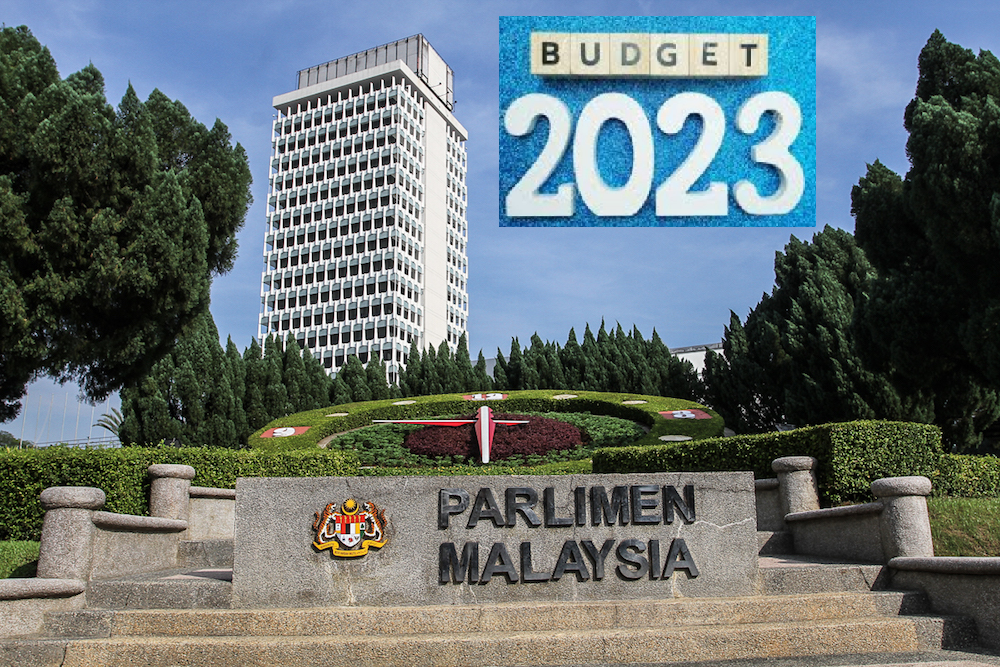ANY hasty decision leading to the failure of Budget 2023 not being tabled, debated, and passed in the Parliament will have significant negative consequences to the country’s economy.
Former deputy international trade and industry minister Ong Kian Ming has listed down three ‘cannon ball effects’ if that happens:
- The ringgit which is already trading at a historic low of RM4.63 to the greenback will fall further: “It will also likely fall against other currencies of our major trading partners including the euro and the Singapore dollar. Imported inflation due to the falling value of the ringgit will also likely increase,” the Bangi MP pointed out.
- Increased borrowing costs for Putrajaya due to an increased risk premium from political uncertainties: Without a budget, domestic and foreign investors will have no guidance on the expected fiscal trajectory of the Malaysian government in 2023 including the Finance Ministry’s (MOF) strategy on managing government revenue and expenditure.
This includes the expected dividend from PETRONAS, additional revenue from changes in tax policies and the possible introduction of targeted subsidies in sensitive areas such as petrol and electricity.
“Without such guidance, foreign investors will err on the side of caution and sell Malaysian assets such as bonds and equities,” argued the DAP spokesman for international trade and industry. “Investors will also demand a higher interest rate on government bonds to account for greater uncertainty and higher risks.”
- Inability of individual ministries and government agencies to align their policies to the budget: Since the budget document is not revealed to the other parts of government only until the budget speech, many ministries cannot confirm if their expenditure and policy requests to the MOF has been approved until budget day.
“Only after the budget has been announced, including the publishing of more detailed line-item expenditures in the budget estimates for individual ministries, can each Ministry confirm their policy plans for the upcoming year, especially for ministries which have requested for new expenditure items to be approved,” asserted Ong.
“While salaries of civil servants and payments for debt servicing can continue even without the budget being passed, other policy-related programmes will inevitably be delayed – and this could affect our economic recovery post-pandemic.”

Although some have pointed to 1999 as a precedent for when a budget was tabled but not passed because of the dissolution of parliament, the economic and political conditions in 2022 is very different from 1999, according to the two-term DAP MP who has announced a break from politics in GE15 to “regroup and recharge”.
Recall that in 1999, the Budget 2000 was tabled on Oct 29 while parliament was dissolved on Nov 11 and elections were held on Nov 29.
“In 1999, the ringgit currency peg provided some protection against currency fluctuations,” he observed. “Even with the BN (Barisan Nasional) holding on to its two-third majority, the budget could only be re-tabled in parliament on Feb 25, 2000, almost three months after polling day,” he observed.
“With an additional six million new voters for GE15, the Election Commission (EC) will need more than three weeks from the day when parliament is dissolved to polling day to mobilise its machinery.”
As there is no certainty that one coalition will be able to win a comfortable majority to form the government, Ong cautioned that the absence of a budget will only add on to the political and economic uncertainties in the post GE15 political landscape.
He further pointed to the recent ill-conceived “mini-budget” by UK chancellor Kwasi Kwarteng which promised tax cuts for the top income bracket but triggered a fall in the pound sterling to below US$1.10, which resulted in the UK government bond yields to surge by 0.8%, and forced the Bank of England (BOE) to take emergency actions to purchase huge amounts of government bonds.
“In the case of Malaysia, the non-budget announcement may trigger similar reactions from the market. This can and should be avoided,” insisted Ong.
As it is, he said the only reason why UMNO president Datuk Seri Ahmad Zahid Hamidi wants parliament to be dissolved before the tabling of Budget 2023 this Friday (Oct 7) is to give himself more time before his eventual court judgement on the 47 charges linked to misuse of RM31 mil worth of Yayasan Akalbudi’s funds.
“The negative impact on the country’s economy because of a delayed budget is the furthest thing from his mind compared to his own selfish interests,” he reckoned.
“Extraordinary times calls for extraordinary action. I hope and pray that leaders and members of parliament from all parties (other than Zahid) can come together to make a stand that the Budget 2023 should be tabled, discussed, and passed in the Dewan Rakyat and Dewan Negara, before parliament is dissolved for GE15 to take place.” – Oct 5, 2022









